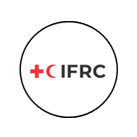On a daily basis, the world is faced with various new and existing issues, such as disaster response and conflict instabilities, that leave many countries focused on addressing such situations to the best of their capabilities. Unfortunately, 2020 was a year like no other that brought instability and uncertainty. The majority of National Societies, worldwide, had to re-shift the focus of their work towards tackling and addressing COVID-19, which meant that other projects were either halted or adapted.
Hiring data specialists
Le Central African Red Cross Society et les Ivory Coast Red Cross Society, were among the many National Societies (NS) que faced challenges at the forefront of the pandemic. Central African Republic, officially labeled a conflict-free country, was still challenged with ‘no-go zones’ that affected the allocation of aid and resources. In order for both National Societies to work on a sufficient COVID-19 response, they needed to understand their data needs and required the assistance and input of a data specialist within their team. 510, the data and digital initiative of the Netherlands Red Cross, was able to support both National Societies in onboarding a local data specialist to both teams. When talking to the data focal points in both National Societies about their experiences, Stéphane N’Dja Ake, the Data Manager of the Ivory Cross Red Cross Society, stated “The NS really wanted to include data in their work and needed the assistance of a data manager to achieve those objectives”. This point was also similar à les one made by Privat Alambert Befio, the Database Administrator of the Central African Red Cross Society, when he expressed “If the NS wanted to execute certain work, they needed the assistance of a data manager because they will be the one responsible for development of the digital tools before execution”.
Data and digital trainings
Support and formation from 510 was given to both data specialists in French. The training included les different data tools and approaches that will assist them in their préparation et response work. “They were both French speaking, which was a nice combination since they were able to reach out to each other and communicate on a daily basis sometimes” said Angelina Savchuk, 510’s Geographic Information Systems and Remote Sensing Analyst. The need to build the National Societies’ data capacity was there, as expressed by N’Dja when he dit “I believe that for my position I needed to improve my skills”. When discussing the trainings and how it has helped in the National Societies’ work, N’Dja stated “I was introduced to different applications and software; I learned how to use Kobo Collect qui allowed me to collect data at the level of different focal points in the field while working on COVID-19 sensibilization”. Additionally, when Befio was asked to share how the trainings helped in his work, he indicated “I learned a lot from the trainings that will help me contribute to digital transformation our NS’s work. We are sometimes faced with situations where we are not allowed to be on the field, but now we are able to determine certain issues and needs before deployment”. Hence, it was important that the support given to the National Societies was contextualized to fit their direct need.
Continuous digital transformation efforts
The National Societies’ awareness regarding data and digital grew and was accompanied with a great appreciation of allocating a data specialist within their unit: “they realized the importance and added value of having a data specialist in their team”, dit Savchuk, when asked about the matter. Rightly so, the added value was similarly expressed by N’Dja when he dit “we don’t have much digital transformation at our NS and this is something that everyone wants and is trying to include; It was something impressive from our side”. Digitizing work has shown to be an essential aspect, specifically when combatting a viral pandemic, but it is equally as important to share experiences and lessons learned with other National Societies in hopes of adopting similar techniques. When discussing this with Savchuk, she voiced that “Ivory Coast Red Cross got inspired when I shared with them what other National Societies have been offered as a solution for their work and expressed interest in using similar approaches”. Similarly, N’Dja mentioned that “a lot of our and other National Societies’ work is not talked about or promoted as much, but I hope to increase the visibility of our actions to other NS”. When discussing next steps of continuous digital transformation of the National Societies’ work, Savchuk stated, “now that they got a taste of what they can do with data and the desire to continue has increased from both National Societies; they only want to do more”. Savchuk also shared a major outcome of the support given as she expressed, “for me, that we were able to establish this connection between the two National Societies was really important since a line of direct communication and sharing was formed; this has been one of my favorite projects with 510”. Currently, both data specialists remain in contact sharing experiences and lessons from the field, while the National Societies are working towards permanently forming and allocating data roles within their teams.
Source de l'image : FICR Plate-forme Web ShaRED


